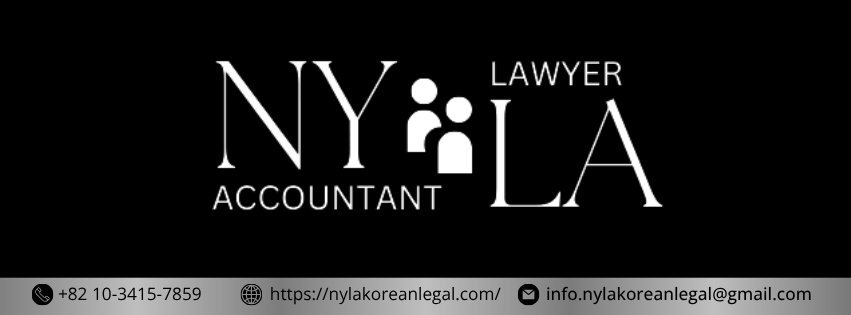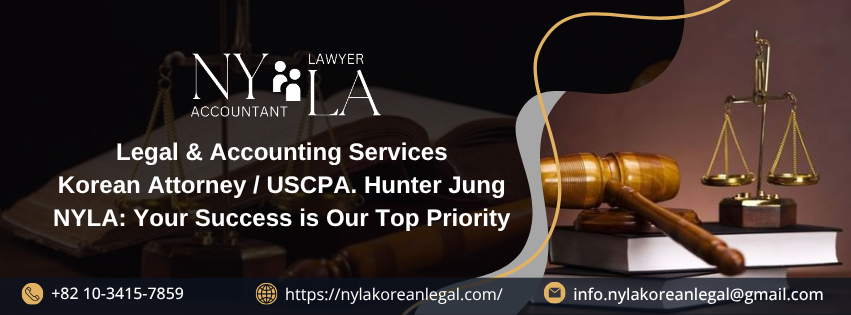Summary
- 1. Introduction to Forms of Wills: Understanding Different Types of Testament
- 2. Forms of Wills According to Civil Law
- 3. Holograph Will: One of the Most Personal Forms of Wills
- 4. Sound Recording Will: A Vocal Expression of One’s Testament
- 5. Notarial Will: Formal and Legally Secure Forms of Wills
- 6. Secret Document Will: Maintaining Privacy in the Forms of Wills
- 7. Instrument of Dictation Will: Emergency Form of the Forms of Wills
- 8. Summary of the Five Forms of Wills
- 9. Why Knowing the Forms of Wills is Important for Estate Planning
- 10. Conclusion: Choosing the Right Forms of Wills for Your Needs
- 11. About NYLA – Korean Legal Office
1. Introduction to Forms of Wills: Understanding Different Types of Testament
When it comes to planning the distribution of one’s assets after death, understanding the forms of wills is essential. A will is a legal document that specifies how a person’s property and affairs should be handled after they pass away. According to the Civil Act, there are five recognized forms of wills, each with its own legal requirements and formalities. This article explores in detail the five main forms of wills: holograph document, sound recording, notarial document, secret document, and instrument of dictation. Knowing these forms will help individuals create valid and enforceable wills.
2. Forms of Wills According to Civil Law
The legal foundation for the forms of wills stems from the Civil Act. This law defines the requirements and procedures to create valid wills and protects the rights of testators (persons making the will). The five primary forms of wills recognized under this act ensure that individuals can express their testamentary intentions clearly and securely. Each form has distinct procedural steps, and failure to comply with these can result in an invalid will.

3. Holograph Will: One of the Most Personal Forms of Wills
The first form of wills is the holograph will or holograph document. This type of will is written entirely in the handwriting of the testator. The testator must write the full text of the will, including the date, domicile, and full name by hand. Additionally, the testator must affix their seal to validate the document. Any corrections, insertions, or deletions within the holograph will must also be made in the testator’s handwriting and sealed accordingly.
The holograph will is highly personal and straightforward, making it accessible for individuals who want to draft their will without involving witnesses or notaries initially. However, strict adherence to the handwriting and sealing requirements is crucial for the holograph will to be legally valid.
4. Sound Recording Will: A Vocal Expression of One’s Testament
Another form under the forms of wills category is the will by sound recording. This type of will allows the testator to declare their testament orally. The testator must state the content of their will, their full name, and the date out loud. A witness must be present to confirm orally that the will was made properly, stating the testator’s name and affirming the will’s authenticity.
The sound recording will is useful for testators who are unable to write or prefer to express their wishes vocally. However, it requires at least one reliable witness to verify the will’s correctness and legality.
5. Notarial Will: Formal and Legally Secure Forms of Wills
The notarial document will is one of the most formal and secure forms of wills. The testator orally declares the content of their will before a notary and at least two witnesses. The notary writes down the will and reads it back to the testator. After confirming the contents, the testator and witnesses sign or affix their seals to the document.
This form of will provides strong legal assurance since it is prepared and verified by an official public officer—the notary. It reduces the risk of disputes due to forgery or ambiguity, making it a preferred form for more complex or valuable estates.
6. Secret Document Will: Maintaining Privacy in the Forms of Wills
The secret document will allows the testator to maintain confidentiality about the contents of the will. The testator prepares a document with their full name written by the writer and seals it. The sealed will must then be presented to at least two witnesses, who must acknowledge it as the testator’s will. The date of presentation is written on the sealed cover, and signatures or seals from the testator and witnesses are affixed.
The closed document must be submitted to a notary or court clerk within five days of the date written on the cover, with the confirmation date affixed to the seal. This method blends privacy with legal formalities, fitting for testators who want to keep their testament secret until death.
7. Instrument of Dictation Will: Emergency Form of the Forms of Wills
In situations where the testator cannot create a will by the previous four methods due to illness or urgent reasons, the instrument of dictation will applies. The testator orally declares the will to one witness in the presence of at least two witnesses. The person who hears the declaration writes it down and reads it aloud. After all parties confirm the accuracy, signatures and seals are added.
Such a will must be submitted to the court within seven days after the urgent condition ends for inspection and approval. It is important to note that an incompetent person cannot make a will through this form.
8. Summary of the Five Forms of Wills
To summarize, the five forms of wills legally recognized are:
-
Holograph Document Will – Handwritten and sealed by the testator.
-
Sound Recording Will – Oral declaration recorded and witnessed.
-
Notarial Document Will – Oral declaration before a notary and witnesses, written and signed.
-
Secret Document Will – Sealed written will presented to witnesses and submitted to authorities.
-
Instrument of Dictation Will – Oral dictation in urgent cases, documented and submitted to court.
Understanding these forms of wills is crucial for anyone wishing to make a valid will. Each form has specific legal requirements designed to protect the testator’s intent and prevent disputes after death.
9. Why Knowing the Forms of Wills is Important for Estate Planning
Estate planning involves making deliberate decisions to ensure assets are distributed according to the testator’s wishes. Knowing the different forms of wills helps individuals choose the most suitable method based on their circumstances. Whether a person prefers privacy, formality, or needs an emergency solution, the law provides diverse forms of wills to accommodate these needs.
Furthermore, compliance with the prescribed forms ensures that the will is legally enforceable, reducing the risk of contestation and confusion for heirs.
10. Conclusion: Choosing the Right Forms of Wills for Your Needs
When creating a will, selecting the appropriate forms of wills is key to ensuring your final wishes are respected. From the personal touch of a holograph will to the legal security of a notarial will, or the urgency covered by the instrument of dictation, understanding these forms empowers you to make informed decisions.
Always consult legal professionals if uncertain about the proper forms of wills to use, and ensure that all legal requirements are meticulously followed to protect your estate and heirs.
11. About NYLA – Korean Legal Office

■ NYLA – Your Trusted Legal Partner in Korea
At NYLA, we understand that the success of foreign businesses in Korea requires not only a solid business strategy but also reliable legal support. With a team of experienced Korean attorneys and legal professionals, NYLA provides tailored legal services for companies, investors, and individuals operating or planning to establish a presence in Korea.
We support our clients throughout the entire business journey with comprehensive services, including:
- Legal consultation on company establishment, taxation, and immigration;
- Advice on commercial real estate, franchising, and product distribution;
- Support in human resources, marketing, and business strategy.
In addition to legal advisory, NYLA also represents clients in civil litigation cases related to business, labor, marriage, family, and inheritance to ensure their rights and interests are fully protected.
■ Contact NYLA

If you’re a foreign business or individual looking for a reliable legal partner in Korea, NYLA is here to help. We are committed to delivering effective, practical, and personalized legal solutions for every client.
With a proven track record of assisting hundreds of international clients, our team is equipped to help you navigate complex legal challenges—whether it’s commercial disputes, contract issues, or foreign investment guidance.
Don’t let legal matters hold you back. Let NYLA be your trusted guide in the Korean market.
■ Get in touch with NYLA for expert legal support
| Website: https://nylakoreanlegal.com/
FB: https://www.facebook.com/nyla.koreanlegal Tiktok: https://www.tiktok.com/@nylakoreanlegal Youtube: https://www.youtube.com/@NYLA-xd8qx Email: info.NYLAkoreanlegal@gmail.com SĐT: +82 10-3415-7859 |
 |






















































